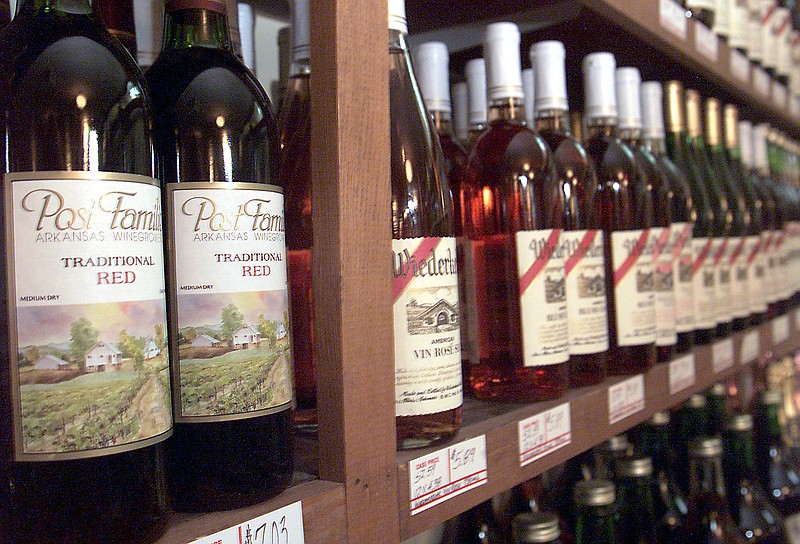Catoosa County, Ga., has a Tennessee law to thank as part of the reason Costco Wholesale is looking to build two miles south of the state line.
Under Tennessee law, Costco, called the biggest wine dealer in the United States, cannot sell its cabernet, chardonnay and chablis in the Volunteer State.
The Issaquah, Wash.-based company is said to be completing details with Catoosa County and Fort Oglethorpe on a site off Cloud Springs Road for a warehouse club. The site is a mile and a half down Interstate 75 from the Georgia-Tennessee line.
Although it sells tires, electronics and clothing, Costco is considered a grocery store because it sells food. In Tennessee, grocery stores are not allowed to sell wine. Such sales are allowed in Georgia unless a county overrides the state law. In Catoosa County, grocery stores can sell beer and wine, but not liquor.
A Costco spokeswoman said the company sold $1.1 billion worth of wine in 2009, and wine trade magazines have crowned the warehouse club the biggest dealer of wines in the United States.
The Cloud Springs location allows the store to draw from the Chattanooga market while following Georgia laws, which officials say probably played a role in the decision to put the store and its millions in sales tax revenue south of the border.
"I'm sure it did," said Sen. Jeff Mullis, R-Chickamauga. "They haven't told us that, but I'm sure it did. Wine is one of their big-ticket items."
Other Georgia officials agreed.
"I'm sure that had something to do with it," said Catoosa County Commissioner Ken Marks.
Mr. Marks and other officials have not confirmed the name of the retailer with which the county is working on the site known as Project Hilltop.
Costco officials also would not comment on the Catoosa location, but company Chief Financial Officer Richard Galanti said the company has considered state laws when deciding on many of its locations.
"Every state is different, but we figure it out," he said.
As to how wine sales laws might affect a decision about a location, Mr. Galanti said it would be factored in with all of the other details.
"Certainly, that's one issue, just like sales tax is an issue," he said.
The Nashville Costco has a building next door run by a different company that sells wine.
The sales tax difference between Tennessee and Georgia probably is a bigger issue, said Chuck Pruett, owner of Greenlife Grocery, but he said "heck, yeah," the wine laws probably played a role in Costco's decision.
Shoppers in Catoosa County pay 7 percent tax compared with 9.25 percent in Hamilton County.
Michael G. Clayman, editor of Warehouse Club Focus magazine, said retailers are going to build where it makes the most sense. If a few miles can give a store the ability to sell one of its biggest products, it's a move many would choose to make, he said.
"If they have a location that would be easier for them to obtain a liquor license and to stock beer, wine, spirits, alcohol inside the building, theoretically they'd be more amenable to locating the building in that area," he said.
Grocery store groups have said they plan to push Tennessee lawmakers to allow wine in grocery stores, hoping for fresh legislation this session. If so, it would be the fourth year in a row the issue was debated.
Chris Bratcher, owner of Riverside Wine and Spirits in Chattanooga and a Tennessee Wine and Spirits Retail Association board member, said eliminating the law would increase underage access to alcohol and leave small business owners "handicapped by the rules."
If only the wine portion of the law changed, grocery stores have would have a huge advantage in buying power, customer traffic and marketing, Mr. Bratcher said.
"We can't sell anything else," he said. "We can't sell wine along with cheese and gourmet food."
If the wine law were changed, he said, all of the alcohol regulations would have to be changed to ensure fairness.
Mr. Pruett said the wine law complicates things and puts Tennessee grocers at a disadvantage.
"We feel wine can be a very important part of a meal, and we think it should be able to be sold at grocery stores," he said.
Next door to Greenlife is a wine shop called The Vine run by Mr. Pruett's wife. The grocery and the wine shop are separated by a glass wall.
Though the wine shop's money doesn't mix with Greenlife's, Mr. Pruett said he tried to get the product "as much into the grocery store as possible."
Still, customers often don't want to push a cart next door and ring up separate transactions, he said.
"Today, people don't want to make two stops," Mr. Pruett said.
